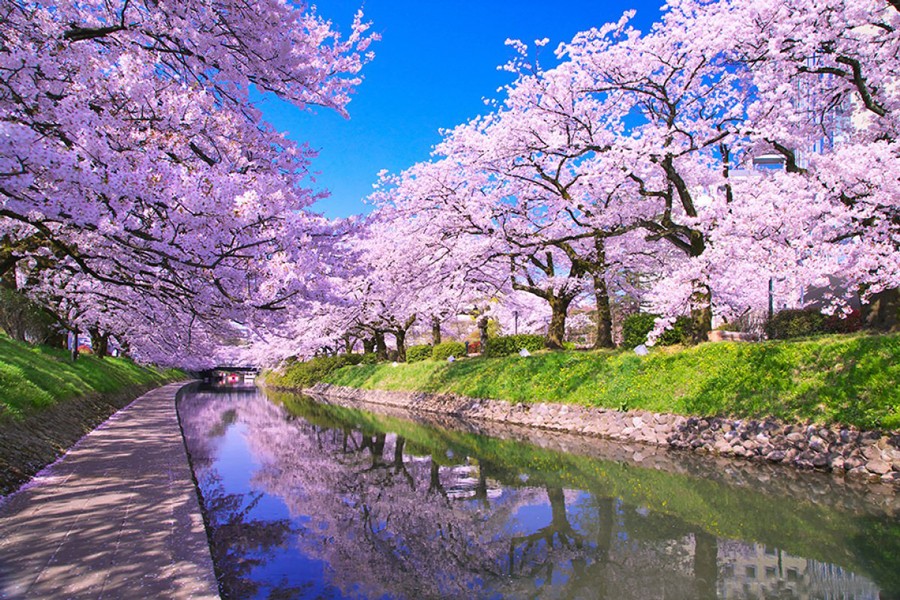First the early cherry blossoms and now the disappearance of an island -actually an islet -- off the northern coast of Japan! The disappearance of the island follows the obliteration of a Hawaiian island under the influence of Hurricane Walaka. A series of hurricanes and storms have lashed parts of the United States of America, the Caribbean, Indonesia and Japan during the past few months. The immediate impacts of those have been devastating for the areas directly hit but the long-term and side effects have started showing in strange and unpredictable ways.
For example, some of the cherry trees in Japan misread the change in the weather pattern and mistook the Autumn, maybe, as the advent of the Spring. So, cherry blossoms appeared untimely on several trees. Global warming has been working its way by advancing blooming of these flowers earlier than before, reportedly, in 1,200 years' recorded data. For roughly 1,000 years until 1850, the flowers usually bloomed around April 17 but the timing is now April 6. Unseasonal cherries have not been an addition to the freakishness of Nature. Behind this exceptional event, man's undesirable contribution is largely to blame.
The disappearance of the Japanese island has taken place so quietly and without anyone's noticing it that this sounds rather intriguing. Its location was only 500 metre away from a village in Hokkaido. A fisherman first noticed that the island was missing and then a Japanese writer wanted to visit the island for inspiration of his book. But the island was nowhere to be spotted and even a search by the coast guards and fishermen proved futile to detect the existence of the island. Japan may have gone through the experience of gaining new islands which emerged as a consequence of volcanic eruption; but that is poor reimbursement for the recent loss!
So far as earthquakes and volcanic eruptions are concerned, human contribution can be ruled out. Even if there is any, it is yet to be discerned by scientists. But the increasing storms and hurricanes are thought to have their origins in global warming with excessive carbon dioxide gas emission by man.
Untimely fruition of cherry trees is caused by release of hormone in response to warmer weather. Those threes with blossoms have mistaken the signal of warm weather and released the hormone. What if mango trees in this country and other South Asian countries also misread the signal of the weather that is more like that of the late Winter? The sky remains overcast on account of a series of depressions in the Bay of Bengal. It is warm during the noon and afternoon. Even in the first half of the night, there is need for cooling by electric fan or air conditioner but the latter half of the night is somewhat cold. What is most striking is the blowing of the cool breeze from the south instead of the north. So long chilly air from the north heralded the advent of the Winter.
So it would not be surprising if mango trees start budding long before their usual time or any other flowers responds mistakenly to the capricious weather. On the Bangla calendar, Kartik is the first month of Hemanta -a variation of Autumn unique to this part of the world. Although, dews are falling and haze that hangs like a thin screen of obscure velvet in the distant horizon is there as well, Hemanta has not made its presence felt in the traditional manner. Something is missing because of the southern breeze blowing gently.
Should the people of this land brace for some extraordinary changes in the weather pattern? Weather scientists have indicated that this part of the world may have to encounter unbearable hot weather. This year, the Autumn usually marked by sweltering heat and humidity did not take their toll as they are supposed to. The monsoon from the Bay and the Arabian sea had between them a conflict of sort and this spared the region of the palm-ripening heat of Bhadra.
Scientists warn that the deterioration of weather is taking place at a rate faster than previously thought. But some headstrong politicians would not take note of the warning, even if their countries face unprecedented storms and floods. They are likely to be consigned to the dustbin of history because of their acts against humanity.


